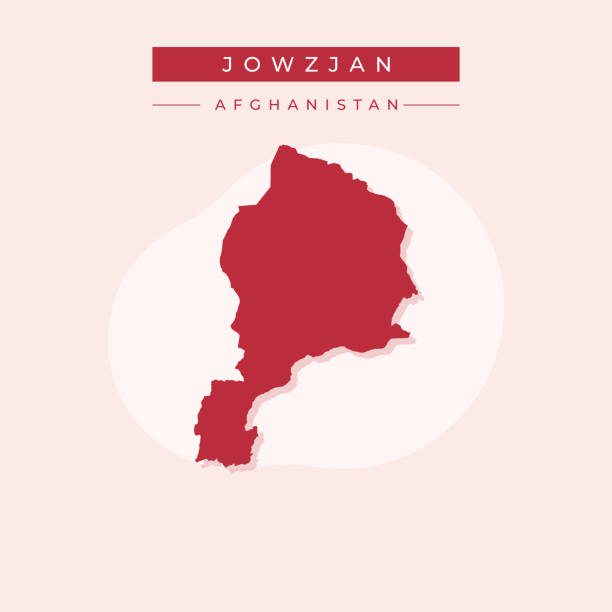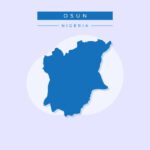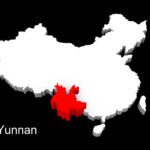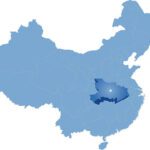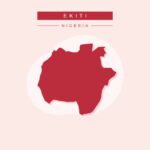The Center for the Scientific Study of Families reports are designed to provide relevant information about the conditional state of families in a specified context. The report provides information such as population, culture, family structure, and family life.
Family reports are an important tool for improving the lives of families. By providing information about the family’s conditional state and context, family reports can help improve communication between families and service providers and lead to better outcomes for families and children.
Introducing Jowzjan, Afghanistan
Jowzjan is one of the thirty-four provinces of Afghanistan, located in the north of the country, bordering neighboring Turkmenistan. The province is divided into 11 districts and contains hundreds of villages. It has a population of about 613,481, which is multi-ethnic and mostly agricultural. The provincial capital is Sheberghan, which is the largest city in Jowzjan and serves as an important commercial and administrative center.
The economy of Jowzjan is primarily agrarian, with agriculture being the main source of livelihood for the population. Farmers grow various crops, including wheat, corn, cotton, and fruits, with agriculture benefiting from the presence of the Amu Darya River and its irrigation potential. Livestock farming is also common in the province. Jowzjan’s natural gas reserves also contribute to its economic activity.
Historically, the region of Jowzjan has been part of various empires and dynasties, reflecting its strategic location on the Silk Road. It has witnessed the rise and fall of several historical cities and archaeological sites.
Cultural and Ethnic Diversity
The population of Jowzjan is ethnically diverse, with significant representation from Uzbek, Turkmen, Tajik, and Pashtun communities. Each group contributes to the region’s cultural richness. The ethnic breakdown of the province is described as:
Uzbeks: The Uzbeks are the largest ethnic group in Jowzjan, making up about 50% of the population. They are Sunni Muslims and speak the Uzbek language. The Uzbeks are traditionally farmers and traders.
Turkmen: The Turkmen are the second largest ethnic group in Jowzjan, making up about 30% of the population. They are Sunni Muslims and speak the Turkmen language. The Turkmen are traditionally nomadic herders and traders.
Tajiks: The Tajiks are the third largest ethnic group in Jowzjan, making up about 15% of the population. They are Sunni Muslims and speak the Tajik language. The Tajiks are traditionally farmers and traders.
Hazaras: The Hazaras are the fourth largest ethnic group in Jowzjan, making up about 5% of the population. They are Shia Muslims and speak the Hazaragi language. The Hazaras are traditionally farmers and traders.
There are also a number of smaller ethnic groups in Jowzjan, including the Aimaqs, Balochis, Pashtuns, and Nuristanis.
Family Demographics

Afghan shepherd with his flock of goats
The family size among the groups in Jowzjan, Afghanistan varies. The average family size for the Uzbeks is 6.2 members, for the Turkmen is 6.1 members, for the Tajiks is 5.8 members, and for the Hazaras is 5.5 members.
The family structure in Afghanistan, including Jowzjan, is often characterized by strong family ties and extended family networks. Extended families, consisting of several generations living together or in close proximity, are not uncommon. The concept of “family” in many Afghan communities often extends beyond the nuclear family to include a wide network of relatives. Family is considered to be the most important unit in society, and it is responsible for providing love, support, and protection for its members. Specific statistics for marriage and divorce rates were unavailable for families in Jowzjan.
Afghanistan, including Jowzjan, has historically faced significant challenges in education due to factors such as ongoing conflict, economic instability, gender disparities, and limited access to schools and educational resources in certain regions. The literacy rate is reported to be between 20-30 percent. However, efforts have been made to improve education in the country over the years. An Afghan news report states that the Jowzjan Department of Education has been collaborating with the United Nations Children’s Fund to build more classrooms throughout the province.
Conclusion
Cultural, religious, and historical factors have a significant influence on family life in Jowzjan, Afghanistan. Each ethnic group brings its own distinct customs, traditions, and practices, contributing to the region’s rich cultural tapestry. From the emphasis on extended family networks among Uzbeks and Turkmen to the intellectual pursuits among Tajiks and the adherence to the Pashtunwali code among Pashtuns, families in Jowzjan reflect the diversity and complexity of Afghan society. Despite historical challenges and ongoing conflicts, families in Jowzjan continue to uphold their traditions and provide a sense of stability and resilience in the face of adversity.

